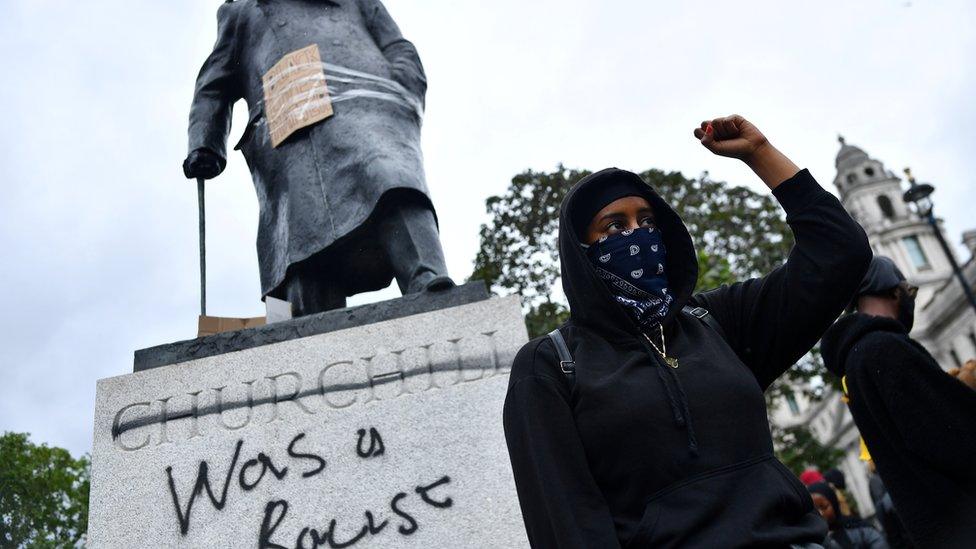George Floyd death: Sturgeon urges Scots not to gather for protests
- Published
Coronavirus: 'Find safe ways to protest Black Lives Matter'
Scotland's first minister has urged people not to gather for mass protests against racism over the weekend because of the coronavirus crisis.
Demonstrations have been planned across the country in the wake of the death of George Floyd in the US.
Nicola Sturgeon said coming together in mass gatherings was "simply not safe" and "poses a real risk to life".
She said people should instead find safer ways of making their voices heard.
A protest due to be held in Glasgow's George Square on Sunday has now been moved to Glasgow Green, where organisers say it will be easier to maintain social distancing.
Similar events are planned for towns and cities including Edinburgh, Aberdeen and Inverness over the weekend.
Ms Sturgeon said that, under normal circumstances, she may have been planning to join one of the protests herself.
She added: "I want to urge you to make your voices heard. We all feel very strongly about this, but I want to ask you to do so safely.
"Coming together in mass gatherings right now is simply not safe - it poses a real risk to health and it poses a real risk to life."
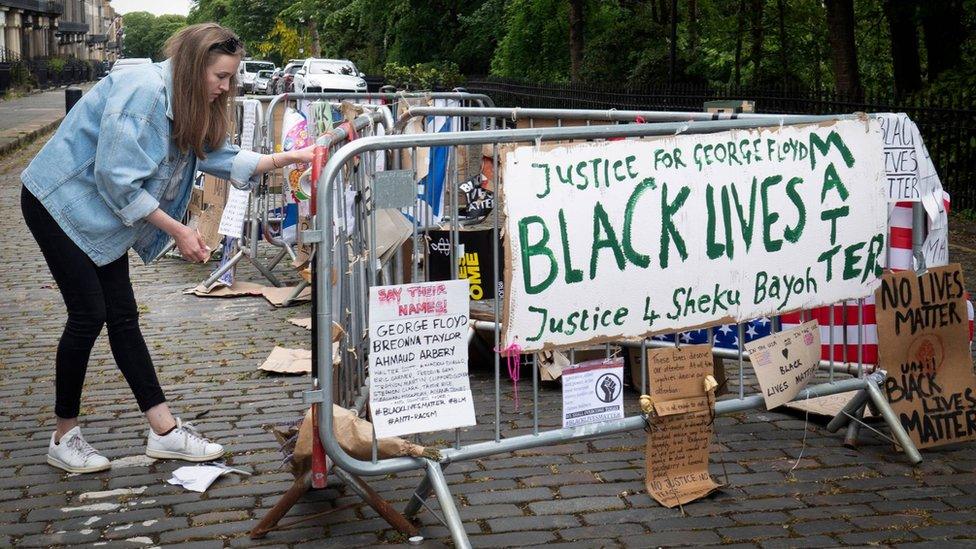
Protest posters have been placed near the US Consulate General's office in Edinburgh
Ms Sturgeon said people could instead "make your voice heard online, you can lobby your elected representatives or you can donate to anti-racism campaigns".
One of the organisers of the Glasgow protest, Barrington Reeves, told BBC Scotland that he respected the views of those who were urging people not to attend - but insisted that the event would go ahead.
Mr Reeves said: "It's not often you look back through history and see a civil rights movement where they effected change by posting on Instagram.
"We are asking people to stay socially distant and to stay within their households, and if possible after the event to be tested or to isolate for seven days."

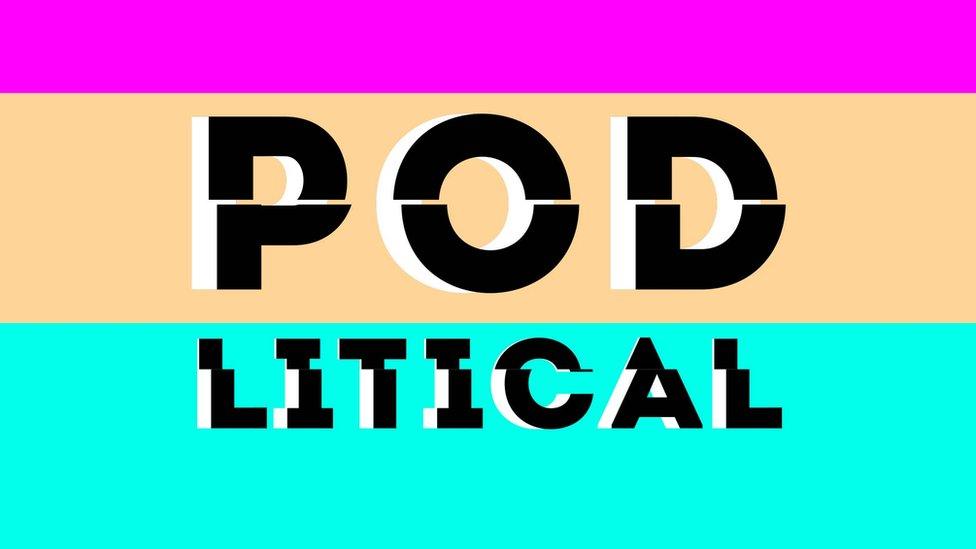
Grime musician Ransom FA and writer Claire Heuchan join the Podlitical team for a frank discussion about what it means to be black and Scottish.

Scotland's justice secretary, Humza Yousaf, and Chief Constable Iain Livingstone have both pledged that policing of the protests will be "proportionate", and that they will be allowed to go ahead.
Mr Yousaf has used the example of protests against lockdown in Glasgow in May as a model.
He said that event was attended by an estimated 30 to 40 people with one arrest, adding: "They were allowed to say their piece and then they were asked to disperse, and the vast, vast majority of them complied with that order from the police."
Mr Yousaf has signed a joint letter alongside other politicians and anti-racism campaigners also urging people not to attend the rallies, and to find alternative and safe ways of protesting.
It has also been signed by Kadijartu Johnson - the sister of Sheku Bayoh, who died after being restrained by police in Kirkcaldy in 2015.
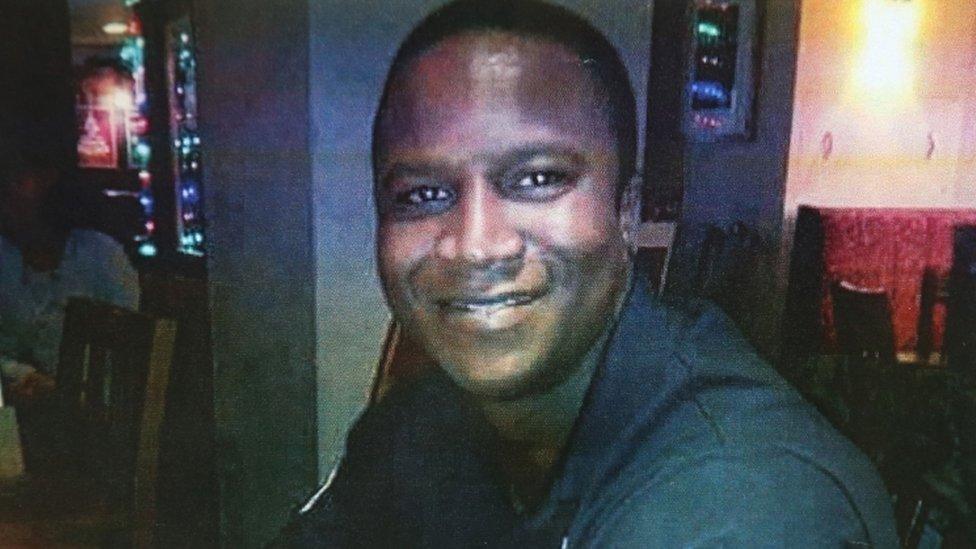
Some anti-racism campaigners in Scotland believe there are parallels between the deaths of Mr Floyd and Sheku Bayoh (pictured)
The statement warned progress on easing lockdown in Scotland is "fragile" and said: "Like so many we want to stand in unity with millions across our planet to show solidarity with those protesting against racial injustice in the USA but also to support those challenging racial injustice and discrimination in Scotland.
"The rules in place are there to protect people's health and ultimately people's lives.
"Therefore, as long-term anti-racist campaigners we are still urging people to protest but to use the many other methods available at this time, including digital protests.
"We hope people will understand our position and explore other methods of demonstrating practical solidarity with #"BlackLivesMatter."

More on George Floyd's death
VIEWPOINT: Tipping point for racially divided nation
TIMELINE: Recent black deaths at hands of police
BACKGROUND: Five pieces of context to understand the protests
CRIME AND JUSTICE: How are African Americans treated?

- Published3 June 2020
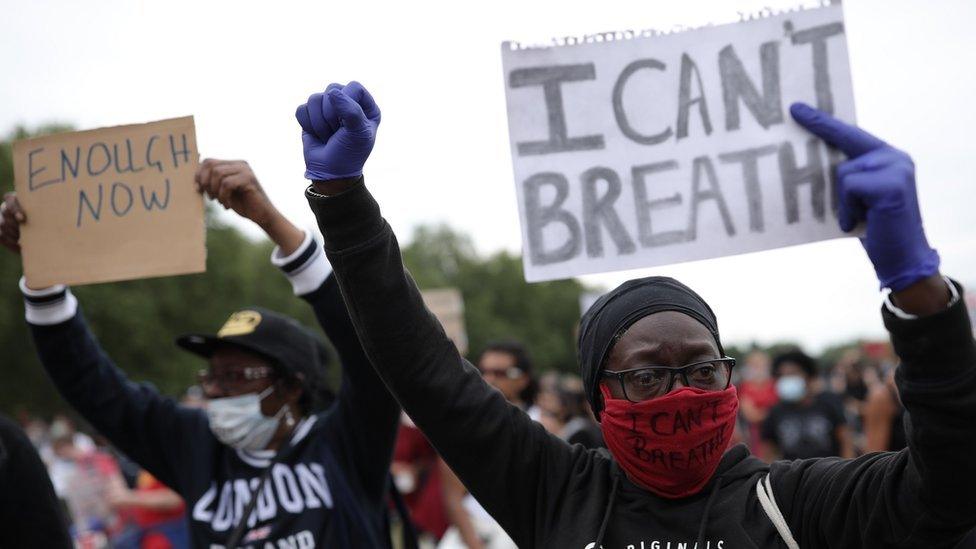
- Published8 June 2020
